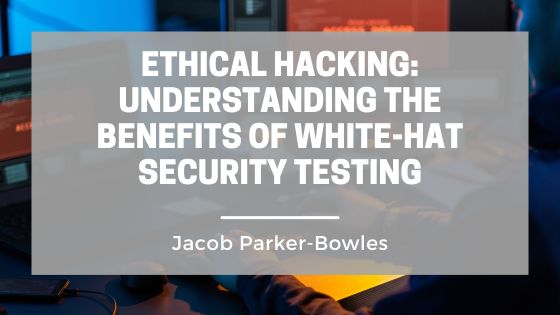In today’s digital age, cybersecurity threats pose significant risks to organizations of all sizes and industries. Cyberattacks, data breaches, and other security incidents can result in financial losses, reputational damage, and legal liabilities. To proactively identify and address vulnerabilities in their systems and networks, many organizations turn to ethical hacking, also known as white-hat security testing. In this blog post, we’ll explore the concept of ethical hacking and discuss the benefits of conducting white-hat security testing.
What is Ethical Hacking?
Ethical hacking involves the authorized and legal testing of an organization’s IT systems, networks, and applications to identify security vulnerabilities and weaknesses. Unlike malicious hackers, ethical hackers, also known as white-hat hackers, use their skills and expertise to uncover vulnerabilities and help organizations improve their cybersecurity posture.
Ethical hacking typically involves various techniques and methodologies, including penetration testing, vulnerability assessments, and social engineering, to simulate real-world cyberattacks and identify potential security risks. By proactively identifying vulnerabilities before they can be exploited by malicious actors, organizations can mitigate risks and strengthen their defenses against cyber threats.
Benefits of White-Hat Security Testing
- Identifying Vulnerabilities: Ethical hacking helps organizations identify vulnerabilities and weaknesses in their systems and networks before they can be exploited by malicious actors. By uncovering vulnerabilities proactively, organizations can address them promptly and reduce the risk of security incidents.
- Improving Security Posture: Ethical hacking provides valuable insights into an organization’s security posture, highlighting areas for improvement. By addressing vulnerabilities and implementing security best practices, organizations can strengthen their defenses and reduce the likelihood of successful cyberattacks.
- Compliance Requirements: Many industries are subject to regulatory requirements and compliance standards related to cybersecurity. Ethical hacking can help organizations demonstrate compliance with regulations such as the Payment Card Industry Data Security Standard (PCI DSS), Health Insurance Portability and Accountability Act (HIPAA), and General Data Protection Regulation (GDPR) by identifying and addressing security vulnerabilities.
- Protecting Reputation: A data breach or security incident can have a devastating impact on an organization’s reputation and brand image. By proactively identifying and addressing vulnerabilities, organizations can demonstrate their commitment to cybersecurity and protect their reputation among customers, partners, and stakeholders.
- Cost Savings: The cost of a data breach can be significant, including financial losses, legal fees, regulatory fines, and reputational damage. By investing in ethical hacking and addressing vulnerabilities proactively, organizations can avoid the potentially catastrophic costs associated with a security breach.
Conclusion
Ethical hacking plays a crucial role in helping organizations identify and address security vulnerabilities proactively. By conducting white-hat security testing, organizations can strengthen their cybersecurity defenses, improve their security posture, and reduce the risk of data breaches and other security incidents. As cyber threats continue to evolve and become more sophisticated, ethical hacking will remain an essential component of an organization’s cybersecurity strategy, helping to protect sensitive data, safeguard critical assets, and maintain trust and confidence among customers and stakeholders.

